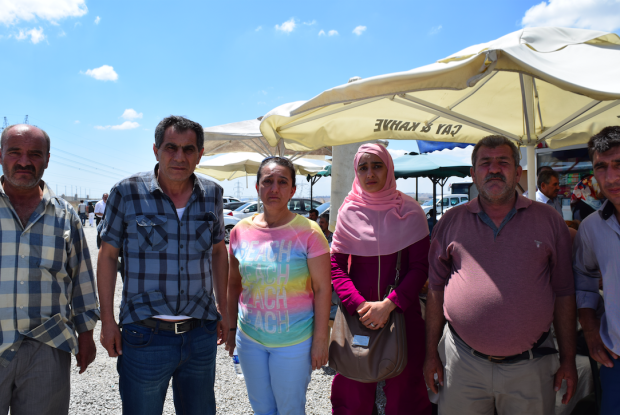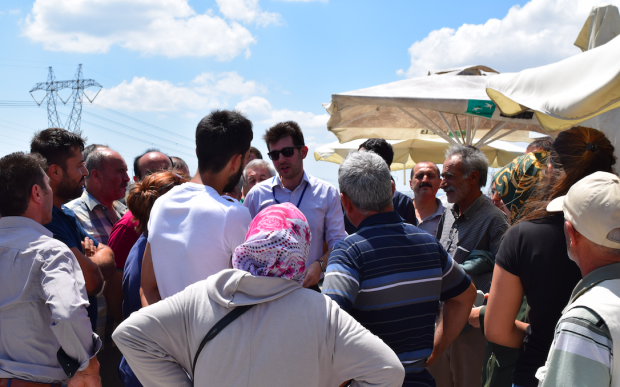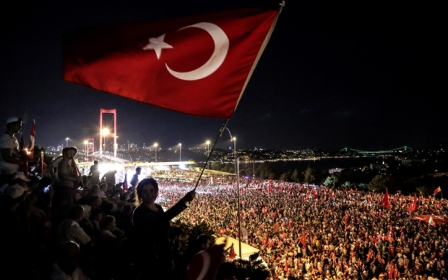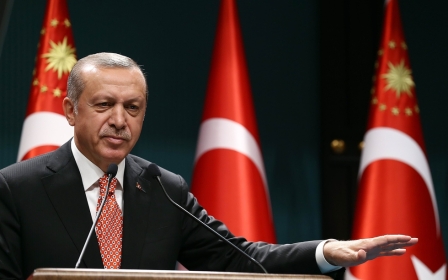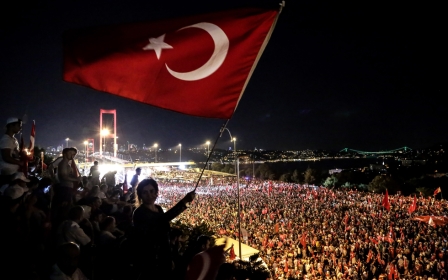Families of detained soldiers sleep in Turkey's streets to get answers

ISTANBUL, Turkey – Hundreds of concerned families have descended on Istanbul’s Silivri prison complex where they have set up camp in a bid to find out even the slightest bit of information about what has happened to their sons, brothers and husbands.
The families of the conscript soldiers first began arriving last Monday but their numbers have swelled as new arrivals have flocked in from around the country following the government’s week-long silence about the fate of 1,600 young conscripts believed to be imprisoned in Silivri. The lucky ones sleep in the nearby mosque for a few hours a day, and some sleep in their cars, but many can be seen just sleeping out in the open in the summer heat simply waiting for news.
Following a botched coup attempt by the army on Friday 15 July, the government has cracked down hard, rounding up almost 9,000 soldiers and several thousand other Turks they accuse of having links to controversial cleric Fethullah Gulen who Ankara claims orchestrated the coup.
However, families of the detained conscripts insist that the young men, who by law are required to serve in the army, were merely following orders and are being wrongly punished.
“My boy is innocent. He is just a private. They take orders,” Nevin Ilhan, a mother who has set up camp outside Silivri, told Middle East Eye.
“They are told that is what they have to do. Now my son is paying the price for having done what they, even the politicians, say soldiers have to do.”
Ilhan said that her 23-year-old-son Gorkem was just five days away from finishing his conscription at a military base in Istanbul when the attempted coup began.
Ilhan says she last heard from her son hours before the coup when he called her to tell her he was scared because his superior officers had told him he would be shot if he refused to open fire when ordered.
Since hearing reports that some of the detained conscripts are being mistreated and possibly even tortured, Ilhan says she has grown increasingly concerned.
“As a mother at the moment I just want to hear that my son is safe. I just want word that he is not being ill-treated. My Gorkem is innocent,” she said, while continuing to profess his innocence.
“I went from being a mother of an officer to a mother of a traitor. All these kids do is follow orders.
“He was just an eager fan of the Fenerbahce football team [in Istanbul]. He didn’t follow politics, nor did he care about it,” she added.
Ahmet Atas has travelled from the southeastern city of Van and has been camped outside the prison since Monday. He says that his 20-year-old nephew Hayrettin Atas, who was doing his military service in Istanbul, was among those taken into custody in the early hours of Saturday 16 July.
“Hayrettin’s conscription would have ended today on 26 July if he hadn’t been arrested. We have had no news of him. I just know he is here,” said Atas.
Further complicating matters is the state of emergency, which was enacted in the wake of the coup, and prevents lawyers from gaining access to the detainees.
Berat Can Tanik is a freshly qualified lawyer who finished his military conscription just three months ago. He says that despite the various challenges involved, he is determined to work to protect the conscripts' rights as much as possible and says he will continue fighting to get information for the families.
“I am currently representing eight of the detained conscripts. I haven’t been allowed to meet them yet but have read their statements,” said Tanik. “Every single one of them says they were told that there was social upheaval and the police couldn’t cope and that’s why they were being sent out onto the streets.”
Tanik told MEE that there were 1,600 soldiers being held at Silivri but that he was convinced that all the conscripts would eventually be released.
Conscript: noun kɒnskrɪpt/ 1.A person enlisted compulsorily. "army conscripts."
Military service is compulsory for all Turkish males above the age of 18, with Turkey one of last NATO members to enforce conscription. The time conscripts have to serve depends on their level of education and varies from six to 12 months.
“The conscripts will be released but I am not sure of those who attended military high school and were career soldiers [will be released],” he said. “Ballistic tests will be carried out on their weapons and it will be a long process for them.”
During the upheaval, 265 civilians were killed and more than 2,000 injured. At least 24 soldiers, accused of being pro-coup, were also killed.
A government official previously told MEE that a coup attempt in a country with a population of 78 million meant it was natural for thousands to be involved in planning and executing it. The official said the high number of arrests should not come as a surprise under the circumstances.
There is also growing discussion about bringing back the death penalty for coup plotters.
Turkey officially abolished the death penalty in 2004, and carried out its last ever execution in 1984, but since the coup Turkish President Recep Tayyip Erdogan has said in numerous interviews that the Turkish people are demanding the return of corporal punishment, and that if it is approved by parliament, he will happily reintroduce state executions.
Such threats have families exceedingly worried. Not all of the families camped outside Silivri have come to ask about the fate of conscripts and families of professional soldiers have also started to arrive out of shock and concern about the treatment soldiers are receiving.
“What kind of people drag our children on the streets like this in their underpants while arresting them. They don’t even do such things to PKK (Kurdistan Workers’ Party) members,” said Tekmile Unal, a mother from the eastern city of Kirklareli who had come to protest the detention of her 26-year-old son.
Unal said her son Sinan Atmaca, was a lieutenant, but had no idea what was going on and even asked her about what was happening on the Friday in question.
“He was on medical leave and they raided our house and dragged him out in his underpants. They said he must have known something to go on leave,” she said.
Most of the families are still in shock. Tulay Baseymez, whose son Selcuk is a 28-year-old sergeant and not a conscript, fluctuates between worry and rage.
“My son just last month returned from a mission in the southeast [where the army is currently at war with the PKK],” said Baseymez. “I went from being a mother of an officer to a mother of a traitor. All these kids do is follow orders.”
During the last contact she had with Selcuk on the night of the coup, he told her that they were told to get ready for an operation because the PKK had cut off access to the Bosphorus strait.
“I don’t know who is going to help us and come to our aid. We don’t deserve to be treated like this,” she said. “Plus they don’t stop to think if it wasn’t our children who surrendered we would have a very different country today.”
Until she gets answers, Baseymez, like so many others, is vowing to stay put outside the prison.
Ahmet Atas from Van said: “I have nowhere to stay. No money to buy anything. But I won’t return home until I see my nephew.”
This article is available in French on Middle East Eye French edition.
New MEE newsletter: Jerusalem Dispatch
Sign up to get the latest insights and analysis on Israel-Palestine, alongside Turkey Unpacked and other MEE newsletters
Middle East Eye delivers independent and unrivalled coverage and analysis of the Middle East, North Africa and beyond. To learn more about republishing this content and the associated fees, please fill out this form. More about MEE can be found here.


